2021 Speakers
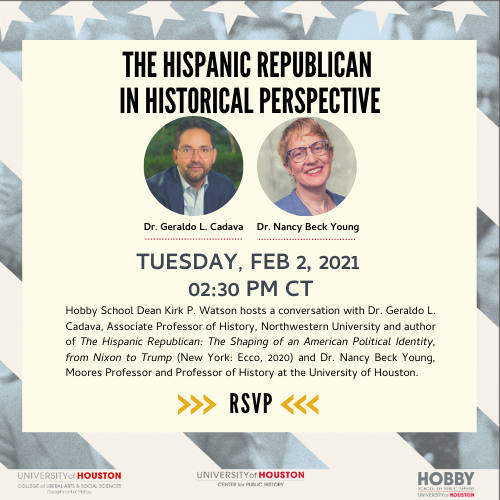 The Hispanic Republican in Historical Perspective
The Hispanic Republican in Historical Perspective
Dr. Cavada will discuss the history of the complicated dynamic between Latino liberalism and conservatism, offering insight into one of the most discussed and debated constituency in American electoral politics. Following the presentation, Dr. Cadava and Dr. Nancy Beck Young will discuss how this unique combination affects politics in our time.
Co-hosted with the Department of History and Center for Public History
Please join us for a Macroeconomics Seminar and CPP Speaker Series talk by:
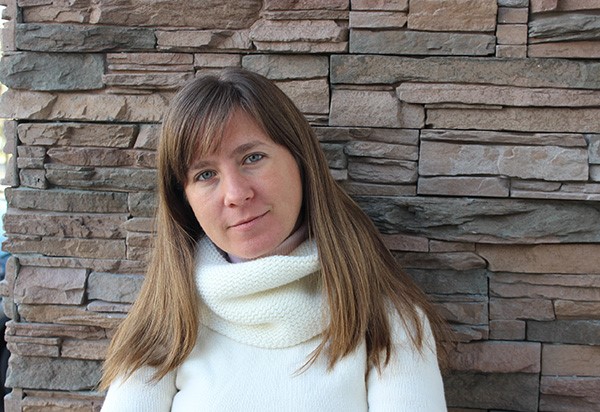 Marina Azzimonti, PhD
Marina Azzimonti, PhD
Professor of Economics, Stony Brook University
Pandemic Control in ECON-EPI Networks
Date and Time: Monday, April 5, 4 pm CT
Paper Title: Pandemic Control in ECON-EPI Networks (with A. Fogli, F. Perri and M. Ponder)
Abstract: We develop an ECON-EPI network model to evaluate policies designed to improve health and economic outcomes during a pandemic. Relative to the standard epidemiological SIR set-up, we explicitly model social contacts among individuals and allow for heterogeneity in their number and stability. In addition, we embed the network in a structural economic model describing how contacts generate economic activity. We calibrate it to the New York metro area during the 2020 COVID-19 crisis and show three main results. First, the ECON-EPI network implies patterns of infections that better match the data compared to the standard SIR. The switching during the early phase of the pandemic from unstable to stable contacts is crucial for this result. Second, the model suggests the design of smart policies that reduce infections and at the same time boost economic activity. Third, the model shows that reopening sectors characterized by numerous and unstable contacts (such as large events or schools) too early leads to fast growth of infections.
Link to paper: https://doi.org/10.21034/sr.609
About the speaker: Marina Azzimonti, PhD, is Professor of Economics at Stony Brook University. She is a macroeconomist who works on topics related to political economy and public finance. Azzimonti is also an expert in measuring the effects of the increasing partisan conflict in on the U.S. economy. Research she conducted shows this increased partisan conflict discourages investments by households and firms. Based on this research, she developed the “Partisan Conflict Index,” which tracks the degree of political disagreement among U.S. politicians, and is now issued monthly by the Philadelphia Federal Reserve.
Center for Public Policy | HOBBY School of Public Affairs | UNIVERSITY of HOUSTON
Hosted by German Cubas and Radek Paluszynski
April 16, 10 AM
Center for Public Policy Political Economy Series with UH Department of Economics:
 Eliana La Ferrara, Bocconi University
Eliana La Ferrara, Bocconi University
Paper Title:"Apart but Connected: Online Tutoring and Student Outcomes Amid the COVID-19 Pandemic"
(with Michela Carrara)
Abstract: In response to the COVID-19 outbreak, the governments of most countries ordered the closure of schools, potentially exacerbating existing learning gaps. This paper evaluates the effectiveness of an intervention implemented in Italian middle schools that provides free individual tutoring online to disadvantaged students during lock-down. Tutors are university students who volunteer for 3 to 6 hours per week. They were randomly assigned to middle school students, from a list of potential beneficiaries compiled by school principals. Using original survey data collected from students, parents, teachers, and tutors, we find that the program substantially increased students’ academic performance (by 0.26 SD on average) and that it significantly improved their socio-emotional skills, aspirations, and psychological well-being. Effects are stronger for children from lower socioeconomic status and, in the case of psychological well-being, for immigrant children.
About the speaker: Eliana La Ferrara is the Fondazione Romeo ed Enrica Invernizzi Chair in Development Economics at Università Bocconi. She holds a Ph.D. in Economics from Harvard University (1999) and an M.Sc. in Economics and Social Sciences from Università Bocconi (1993). Her research covers topics related to the development and political economics.
To register email hobbycpp@central.uh.edu
April 27, 4 PM
Center for Public Policy Political Economy Series with UH Department of Economics:
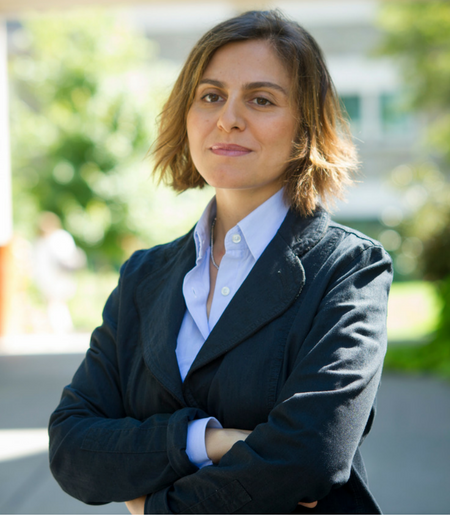 Eleonora Patacchini, Cornell University
Eleonora Patacchini, Cornell University
Paper Title: "Tax Professionals and Tax Evasion"
(With Marco Battaglini, Luigi Guiso and Chiara Lacava)
Abstract: To study the role of tax professionals, we merge tax records of the entire population
of sole proprietorship taxpayers in Italy for seven fiscal years with the respective
audit files from the tax revenue agency. Exploiting quasi-random variation in audit
policy, we first document that there is a robust correlation between a taxpayer's
evasion and that of the other clients of the same tax practitioner. We then exploit
the structure of our data set to study the mechanisms behind this phenomenon. We establish
two results. First, taxpayers sort themselves into tax professionals with heterogeneous
levels of tax evasion. Second, tax professionals generate informational externalities
that affect their clients' tax compliance. The latter increases directly in response
to personally experienced audits and indirectly following the audits of other clients
of the accountant. While the direct effect of tax audits is decreasing over time,
the indirect effect is increasing over time with a total cumulative marginal effect
that amounts to 17% of that of the direct effect. The dynamic spillover generated
by tax professionals is therefore an important channel of influence that ought to
be considered in the evaluation and design of auditing schemes.
About the speaker: Eleonora Patacchini is a professor in the Department of Economics at Cornell University,
who specializes in applied economics and applied statistics. Her recent research focuses
on the empirical analysis of behavioral models of strategic interactions for decision
making. Her research interests include regional and urban economics, labor economics,
political economy, social networks and financial networks, the economics of ethnic minorities,
integration patterns in Europe, the economics of culture and institutions, crime,
gender, the economics of education, computational economics, policy evaluation, experimental
and behavioral economics in the labor market.
To register email hobbycpp@central.uh.edu
Postponed
Center for Public Policy Political Economy Series with UH Department of Economics: Tim Besley, London School of Economics
To register email hobbycpp@central.uh.edu
US Foreign Policy in the Post-Trump: Era Opportunities and Limitations April 23, 2021 at 1:30-3 pm.
The webinar will be held over zoom. Registration is required. Registration link:
The Center for Public Policy at the Hobby School of Public Affairs and the Center for International and Comparative Studies at the College of Liberal Arts and Social Sciences invites you to a webinar on the US Foreign Policy in the Post-Trump Era. The webinar will analyze whether the expected foreign policy priorities of President Biden's government will challenge the Trump administration's choices. Panelists will discuss the challenges facing the Biden administration on an array of issues, including alliances, military competition, trade, climate change, and human rights). They will also engage in an open discussion with members of the audience regarding the policy approaches taken by the Trump administration on those issues, and how the current policy approach stands to compare.
Moderators:
- Zachary Zwald, Director, Center for International and Comparative Studies, CLASS, University of Houston
- Pablo M. Pinto, Director, Center for Public Policy, Hobby School of Public Affairs, University of Houston
Panelists:
- Tyson Chatagnier, Assistant Professor of Political Science, University of Houston
- Ryan Kennedy, Associate Professor of Political Science, University of Houston
- Ashley Leeds, Professor and Chair, Department of Political Science, Rice University
- Niki Marinov, Associate Professor of Political Science, University of Houston
- Patrick Shea, Associate Professor of Political Science, University of Houston
Department of Economics and Center for Public Policy of the Hobby School of Public
Affairs
Political Economy Speaker Series
Tuesday, Oct. 12, 4 PM
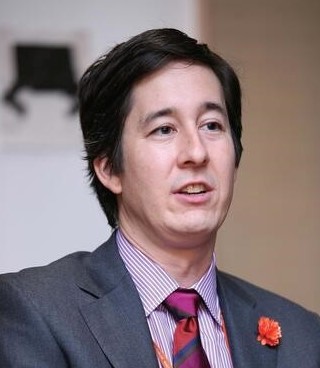 Transhumant Pastoralism, Climate Change and Conflict in Africa
Transhumant Pastoralism, Climate Change and Conflict in Africa
Nathan Nunn, PhD, Frederic E. Abbe Professor of Economics at Harvard University
Location: contact CPP (hobbycpp@central.uh.edu) for zoom link
Abstract: We consider the effects of climate change on seasonally migrant populations that herd livestock – i.e., transhumant pastoralists – in Africa. Traditionally, transhumant pastoralists benefit from a cooperative relationship with sedentary agriculturalists whereby arable land is used for crop farming in the wet season and animal grazing in the dry season. Droughts can disrupt this arrangement by inducing pastoral groups to migrate to agricultural lands before the harvest, causing conflict to emerge. We examine this hypothesis by combining ethnographic information on the traditional locations of transhumant pastoralists and sedentary agriculturalists with high-resolution data on the location and timing of rainfall and violent conflict events in Africa from 1989–2018. We show that droughts in the territory of transhumant pastoralists lead to conflict in neighboring areas. Consistent with the hypothesis, these conflict events are concentrated in agricultural areas; they occur during the wet season and not the dry season; and they are due to rainfall’s impact on plant biomass growth. This mechanism explains a sizable proportion of conflict events in Africa, particularly civil conflicts and religious-extremist attacks. We find that the effects are muted in the presence of irrigation aid projects, but not in the presence of other forms of foreign aid. The effects approach zero as pastoral groups share more political power.
About the speaker: Nathan Nunn is Frederic E. Abbe Professor of Economics at Harvard University. Professor Nunn’s primary research interests are in political economy, economic history, economic development, cultural economics, and international trade. He is an NBER Faculty Research Fellow, a Research Fellow at BREAD, a Faculty Associate at Harvard's Weatherhead Center for International Affairs (WCFIA), and a Fellow of the Canadian Institute for Advanced Research (CIFAR) in the Boundaries, Membership & Belonging program. He is currently an editor at the Quarterly Journal of Economics.
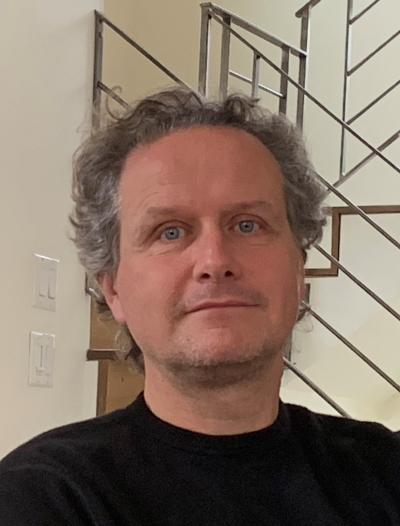 Political Economy Speaker Series
Political Economy Speaker Series
Speaker: Alessandro Lizzeri, Professor of Economics, Princeton University
Title: Individual and Collective Information Acquisition: An Experimental Study
(with Pellumb Reshidi, Leeat Yariv, Jimmy Chan and Wing Sueng)
Date: Tuesday, November 9, 2021
Time: 4:00-5:30pm Central time
Register: The presentation will be held over Zoom: contact CPP (hobbycpp@central.uh.edu) for the link.
Abstract: Many committees—juries, political task forces, etc.—spend time gathering costly information before reaching a decision. We report results from lab experiments focused on such information-collection processes. We consider decisions governed by individuals and groups and compare how voting rules affect outcomes. We also contrast static information collection, as in classical hypothesis testing, with dynamic collection, as in sequential hypothesis testing. Several insights emerge. Static information collection is excessive, and sequential information collection is non-stationary, producing declining decision accuracies over time. Furthermore, groups using majority rule yield especially hasty and inaccurate decisions. Nonetheless, sequential information collection is welfare enhancing relative to static collection, particularly when unanimous rules are used.
About the speaker: Alessandro Lizzeri is Professor of Economics at Princeton University. https://sites.google.com/view/lizzeri
Political Economy Speaker Series co-hosted by Center for Public Policy (Hobby School) and Department of Economics (CLASS)
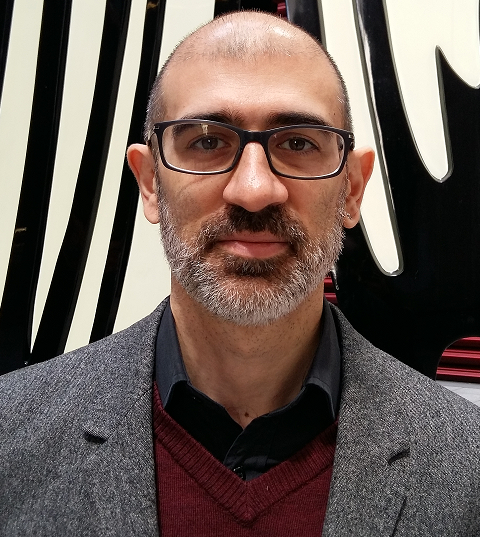
Speaker: Gerard Padro i Miquel (Yale University; https://www.gerardpadro.com/ )
Title: "A Model of Media Capture by Special Interest Groups"
Date: Tuesday, November 30, 2021
Time: 4:00-5:15pm Central time
Register: The presentation will be held over Zoom: contact CPP (hobbycpp@central.uh.edu) for the link.
Abstract: For almost any news item, opposite interest groups prefer coverage to take a slant
in their particular direction. For example, teacher unions prefer coverage of Covid
19 that underlines its risks, while parent groups prefer coverage that minimizes them
in order to keep schools open. We construct a general equilibrium model in which two
interest groups with opposite views can exert costly pressure in capturing the news
reports in a setting with many ex ante identical media outlets. We show that opposite
capturing efforts do not cancel each other and instead result in a social loss due
to information jamming. We also show that, for endogenous reasons, interest groups
tend to sort and separate across media outlets, generating a polarized news environment
driven entirely by the supply side.
About the speaker: Gerard Padro i Miquel is a Professor of Economics and Political Science at Yale University, where he is also the Director of the Leitner Program of International and Comparative Political Economy. He is interested in the interplay between politics and economics as a barrier for development with a focus on civil conflict and on the politics of non-democratic regimes. His previous work has been published at the Quarterly Journal of Economics, American Economic Review, Review of Economic Studies and the Quarterly Journal of Political Science among others.